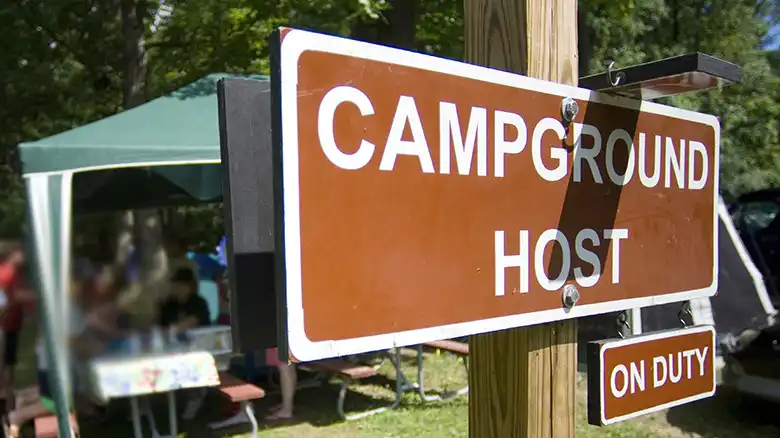Understanding towing capacity isn’t just a matter of convenience; it’s crucial for your safety and that of other drivers on the road.
A Class C license is designed for non-commercial drivers operating vehicles weighing less than 26,000 pounds (11,793 kg) and towing trailers under a specified Gross Vehicle Weight Rating (GVWR). The GVWR represents the total weight of your vehicle, passengers, cargo, and trailer.
According to the National Highway Traffic Safety Administration (NHTSA), exceeding towing capacity is a significant contributor to towing-related accidents, making it imperative to understand and adhere to the weight limitations associated with your Class C license.

Understanding Towing Capacity for Class C Licenses
Class C licenses comes in two categories, commercial and non-commercial. Here’s how each works:
Non-Commercial Class C License Towing Limits
For non-commercial purposes, the weight limitations for trailers can vary depending on your region. In the United States, you can typically tow a trailer with a GVWR under 10,000 pounds (4,536 kg) with a non-commercial Class C license. However, it’s essential to consider the Combined Vehicle Weight Rating (CVWR), which accounts for the total weight of your towing vehicle and trailer combined.
Here’s a table summarizing the weight limits for non-commercial Class C licenses across different regions:
| State | Towing Capacity with Class C License |
| Most States | Up to 10,000 lbs if the combined weight of the towing vehicle and trailer is less than 26,000 lbs |
| New York, Nevada | Can tow vehicles over 10,000 lbs as long as the gross combination weight rating does not exceed 26,000 lbs |
| California, Maryland, Michigan, Nevada, New York, Pennsylvania, South Carolina, Texas, Wyoming | Require a special non-commercial license (e.g. Class B or Class A) to tow vehicles over 10,000 lbs or if the combined weight exceeds 26,000 lbs |
| Remaining States | No special license required to tow vehicles under 10,000 lbs with a regular Class C license |
As an example, let’s say you plan to tow a small camper trailer with a GVWR of 7,000 pounds (3,175 kg) using your non-commercial Class C license in the United States. Provided your towing vehicle’s CVWR can accommodate the combined weight, you would be operating within the legal limits.
Towing with a Commercial Class C License
If you hold a commercial Class C license, the weight limitations for trailers may differ. In the United States, a commercial Class C license allows you to tow trailers with a GVWR over 10,000 pounds (4,536 kg). However, specific weight limits can vary by state, and additional endorsements may be required for certain trailer types, such as those carrying hazardous materials or multiple trailers (double or triple trailers).
For instance, if you need to tow a box truck for business purposes with a GVWR of 15,000 pounds (6,804 kg), you would likely require a commercial Class C license with the appropriate endorsements.
Weight Ranges for Vehicles and Trailers
Here’s a table for the weight range fo different types of towing vehicles:
| Vehicle/Trailer Type | Typical Weight Range (Unloaded) |
| Sedan | 3,000 – 4,500 lbs (1,361 – 2,041 kg) |
| SUV | 4,000 – 6,000 lbs (1,814 – 2,722 kg) |
| Pickup Truck | 4,500 – 7,500 lbs (2,041 – 3,402 kg) |
And here’s the table with the weight ranges for different trailer types:
| Trailer Type | Typical Weight Range (Unloaded) |
| Utility Trailer | 500 – 2,000 lbs (227 – 907 kg) |
| Popup Camper | 1,500 – 3,500 lbs (680 – 1,588 kg) |
| Travel Trailer (15-25 ft) | 3,000 – 7,000 lbs (1,361 – 3,175 kg) |
| Fifth-Wheel Trailer (24-32 ft) | 7,000 – 12,000 lbs (3,175 – 5,443 kg) |
| Boat Trailer (20-25 ft boat) | 2,000 – 5,000 lbs (907 – 2,268 kg) |
| Horse Trailer (2-4 horses) | 4,000 – 8,000 lbs (1,814 – 3,629 kg) |
Please note that these are general weight ranges, and actual weights can vary based on factors such as make, model, size, and additional load.
Key Safety Tips for Towing with a Class C License
Before hitting the road with your trailer, conducting a comprehensive pre-trip inspection is essential. Here’s a checklist to ensure your tow vehicle and trailer are in optimal condition:
- Brakes: Thoroughly check the brake functionality on both the tow vehicle and trailer. Ensure the brake lights are working correctly and the trailer brakes engage properly.
- Tires: Inspect the tire condition and ensure proper inflation for both the tow vehicle and trailer tires.
- Lights and electrical: Test all turn signals, brake lights, and trailer wiring to ensure proper electrical connections.
Proper trailer loading and weight distribution are critical for safe towing. When loading your trailer, consider the center of gravity and distribute the weight evenly. For example, when hauling furniture, place heavier items towards the front of the trailer to maintain optimal weight distribution.
Exploring Towing License Options Beyond Class C
In some cases, your towing needs may exceed the limitations of a Class C license. If you find yourself in this situation, you may need to explore obtaining a Class A or Class B Commercial Driver’s License (CDL).
The table below compares the license requirements and towing capacities for Class C, Class B, and Class A CDLs in the United States:
| License Class | Vehicle Type | Towing Capacity |
| Class C | Single vehicle with GVWR under 26,000 lbs (11,793 kg) | Typically under 10,000 lbs (4,536 kg) for non-commercial use |
| Class B | Single vehicle with GVWR of 26,001 lbs (11,794 kg) or more | Varies, but generally higher than Class C |
| Class A | Combination vehicles with GVWR of 26,001 lbs (11,794 kg) or more | Highest towing capacity, suitable for tractor-trailers and large RVs |
You may need to obtain a Class A or Class B CDL if:
- You plan to exceed the weight limits for a Class C license.
- You need to tow specific trailers that require endorsements, such as house trailers or large recreational vehicles.
- You intend to tow for commercial purposes, which often requires a higher license class based on local regulations.
Obtaining a CDL typically involves completing a written knowledge test and a skills test administered by your state’s licensing agency. You may also need to obtain additional endorsements, such as those for air brakes or tankers, depending on the type of vehicle you’ll be operating.
Conclusion
Towing with a Class C license can open up a world of possibilities, from weekend camping trips to cross-country adventures. However, it’s crucial to understand and adhere to the weight limitations and safety regulations associated with your license class.
Remember, consult your vehicle’s owner’s manual, local Department of Transportation resources, and towing experts for specific details and recommendations tailored to your unique circumstances.


